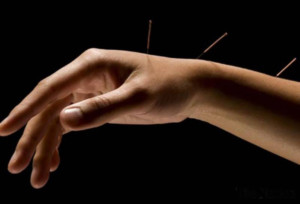 Reposted as Postolova Acupuncture News from HospiMedica
Reposted as Postolova Acupuncture News from HospiMedica
Hypertensive patients treated with electroacupuncture (EA) experienced long-lasting drops in their blood pressure that lasted up to a month and a half, according to a new study.
Researchers at the University of California, Irvine (UCI; USA) and Shanghai East International Medical Center (China) conducted a randomized controlled study of 65 hypertensive patients not receiving medication to examine the effectiveness of EA at select acupoints to reduce systolic blood pressure (SBP) and diastolic blood pressures (DBP). The hypertensive patients were randomly to one of two acupuncture interventions once weekly for 8 weeks. The main outcome measures were effectiveness of EA and average SBP and DBP.
The results showed that in the group receiving EA on both sides of the inner wrists and slightly below each knee [PC 5-6+ST 36-37], a noticeable 6–8 mmHg drop in SPB and 4 mmHg drop in DBP occurred in 70% of participants, when compared to sham EA controls; the improvements persisted for a 45 days. The researchers also identified significant declines in blood levels of norepinephrine (41%), renin (67%), and aldosterone (22%), a hormone that regulates electrolytes. The study was published on August 18, 2015, in Medical Acupuncture.
“Because electroacupuncture decreases both peak and average systolic blood pressure over 24 hours, this therapy may decrease the risk for stroke, peripheral artery disease, heart failure, and myocardial infarction in hypertensive patients,” said senior author cardiologist John Longhurst, MD, of UCI. “By using Western scientific rigor to validate an ancient Eastern therapy, we feel we have integrated Chinese and Western medicine and provided a beneficial guideline for treating a disease that affects millions in the United States.”
Acupuncture is an ancient alternative methodology that treats patients by manipulating thin, solid needles that have been inserted into acupuncture points in the skin. According to traditional Chinese medicine (TCM), stimulating these points can correct imbalances in the flow of qi through channels known as meridians. Scientific research, however, has not found any histological or physiological correlates for qi, meridians, and acupuncture points.
